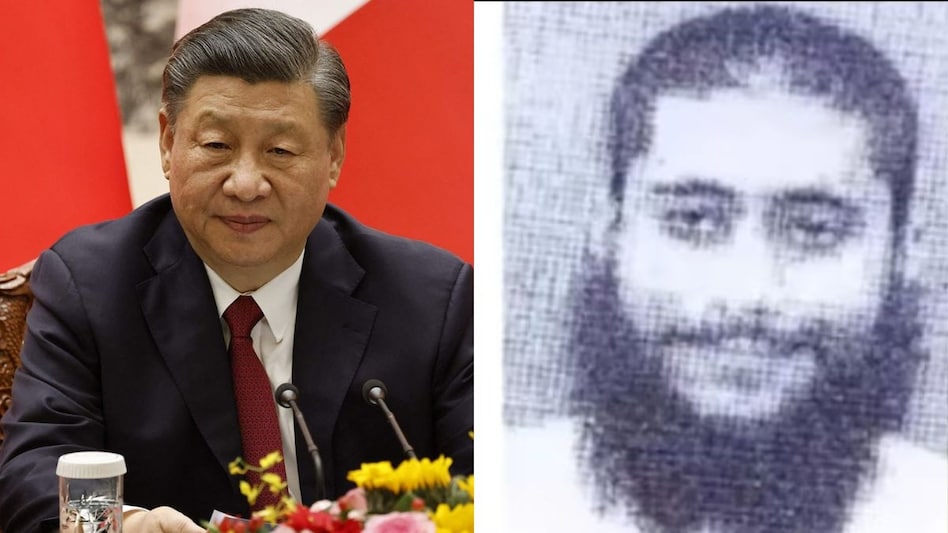China’s true stance on terrorism has once again been exposed. China has blocked the proposal to list terrorist Sajid Mir as a global terrorist. India and the US had jointly proposed adding Mir to the list, but China vetoed the move. Sajid Mir is wanted for his role in the 26/11 Mumbai attacks and is a dangerous terrorist belonging to Lashkar-e-Taiba.
Sajid Mir is a Lashkar-e-Taiba terrorist
According to reports, China on Tuesday obstructed a joint India-US proposal at the United Nations to designate Pakistan-based Lashkar-e-Taiba terrorist Sajid Mir as a global terrorist. Beijing vetoed the proposal at the UN Security Council’s 1267 Al-Qaeda Sanctions Committee to blacklist Mir as a global terrorist, which would have led to asset freezes, travel bans, and arms embargoes.
Terrorist most wanted in 26/11 attacks
Last September, it was revealed that China had placed a hold on the proposal to designate Mir at the UN. Beijing has now blocked the proposal. Mir is one of India’s most wanted terrorists, and the US has announced a $5 million bounty for information leading to his capture for his role in the 26/11 Mumbai terror attacks.
Pakistan had arrested Sajid Mir, the mastermind of the 2008 Mumbai terror attacks, last year. An anti-terrorism court in Lahore sentenced Mir to 15 years in prison. A senior lawyer related to the case stated that the sentence was handed down in June by an anti-terrorism court in Lahore for terror financing charges.
Sajid Mir is on the FBI’s most-wanted terrorists list. Pakistan has consistently denied Mir’s presence and even claimed he was dead at one point.
Pakistan had earlier claimed his death
In December 2021, Pakistani officials claimed Sajid Mir had died, but Western countries, including the US, expressed skepticism and demanded proof. Then, on April 21, 2022, Pakistan suddenly claimed to have arrested Mir, and on May 16, 2022, he was sentenced and sent to Kot Lakhpat Jail in Lahore.
This is not the first time China has vetoed an India-US proposal on this matter. In September 2022, India and China clashed at the UN over the same issue—designating Lashkar-e-Taiba terrorist Sajid Mir, a key accused in the 2008 Mumbai attacks, as a global terrorist. The US had proposed designating Mir as an “international terrorist,” with India supporting the move.
United Nations
The United Nations (UN) is an international organization founded in 1945 after World War II to promote peace, security, and cooperation among nations. Comprising 193 member states, it addresses global issues like human rights, climate change, and conflict resolution through bodies such as the General Assembly and Security Council. Its headquarters in New York City symbolizes international diplomacy and multilateralism.
UN Security Council’s 1267 Al-Qaeda Sanctions Committee
The **UN Security Council’s 1267 Al-Qaeda Sanctions Committee** was established in 1999 under Resolution 1267 to impose sanctions on Al-Qaeda and the Taliban. Following the 9/11 attacks, its mandate expanded to target individuals and entities associated with terrorism globally. The committee maintains a sanctions list, freezing assets, enforcing travel bans, and prohibiting arms sales to designated groups and individuals.
Lashkar-e-Taiba
Lashkar-e-Taiba (LeT) is a Pakistan-based militant organization founded in the 1980s with ties to jihadist activities in Kashmir and beyond. Designated as a terrorist group by several countries, including the U.S. and India, it has been involved in major attacks, such as the 2008 Mumbai attacks. The group has historical links to Pakistani intelligence and continues to operate despite international sanctions.
FBI
The **Federal Bureau of Investigation (FBI)** is the primary federal law enforcement and domestic intelligence agency of the United States, established in 1908 as the Bureau of Investigation (BOI). It gained its current name in 1935 and is known for its role in counterterrorism, cybercrime, and major criminal investigations, including high-profile cases like organized crime during the Prohibition era and counterintelligence during the Cold War. The FBI operates under the U.S. Department of Justice and is headquartered in Washington, D.C., with field offices nationwide.
Kot Lakhpat Jail
Kot Lakhpat Jail, located in Lahore, Pakistan, is a historic prison known for housing high-profile political prisoners, including former Prime Minister Imran Khan. Established during British colonial rule, it has been a significant site in Pakistan’s political history. The jail remains operational and is often referenced in discussions about the country’s judicial and penal systems.
Lahore
Lahore, the cultural heart of Pakistan, is a historic city with roots dating back over a millennium. It flourished as a major center under the Mughal Empire, evidenced by iconic landmarks like the Badshahi Mosque and Lahore Fort. Today, it remains a vibrant hub of art, cuisine, and heritage, blending ancient traditions with modern life.
Mumbai
Mumbai, formerly known as Bombay, is India’s financial and entertainment capital, located on the west coast of the country. Originally a group of fishing villages, it grew into a major port under British colonial rule and became a hub for trade and industry. Today, it is famous for landmarks like the Gateway of India, Bollywood, and its vibrant mix of cultures, cuisines, and colonial-era architecture.
26/11 Mumbai attacks
The **26/11 Mumbai attacks** were a series of coordinated terrorist attacks carried out by 10 militants from the Pakistan-based group Lashkar-e-Taiba across Mumbai, India, from **November 26–29, 2008**. The attackers targeted key locations, including the **Taj Mahal Palace Hotel, Chhatrapati Shivaji Terminus, and a Jewish center (Nariman House)**, killing **166 people** and injuring hundreds. The attacks led to heightened India-Pakistan tensions and global counterterrorism efforts.





